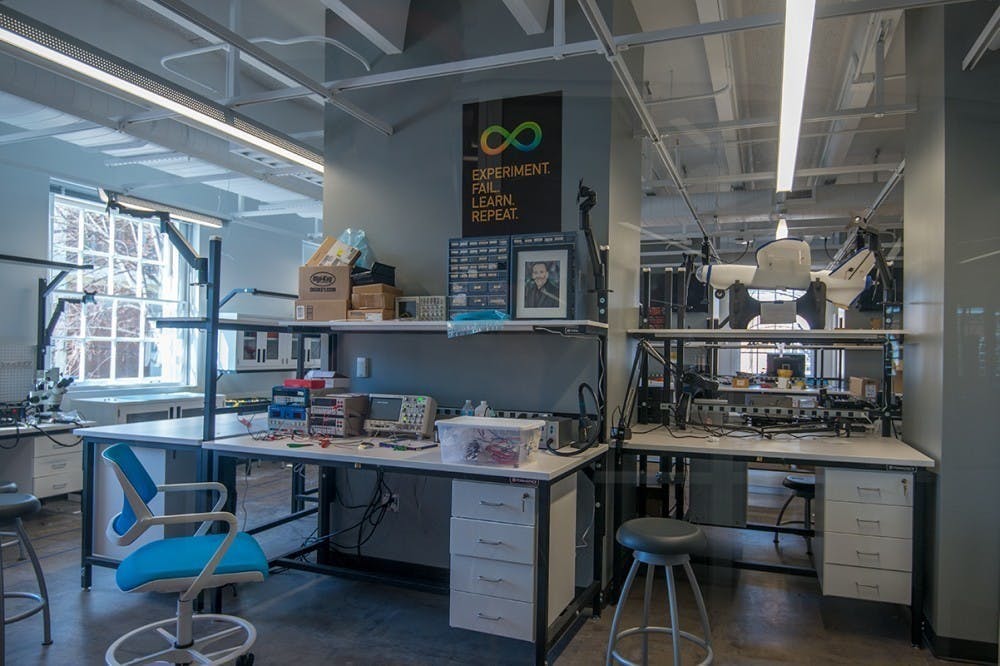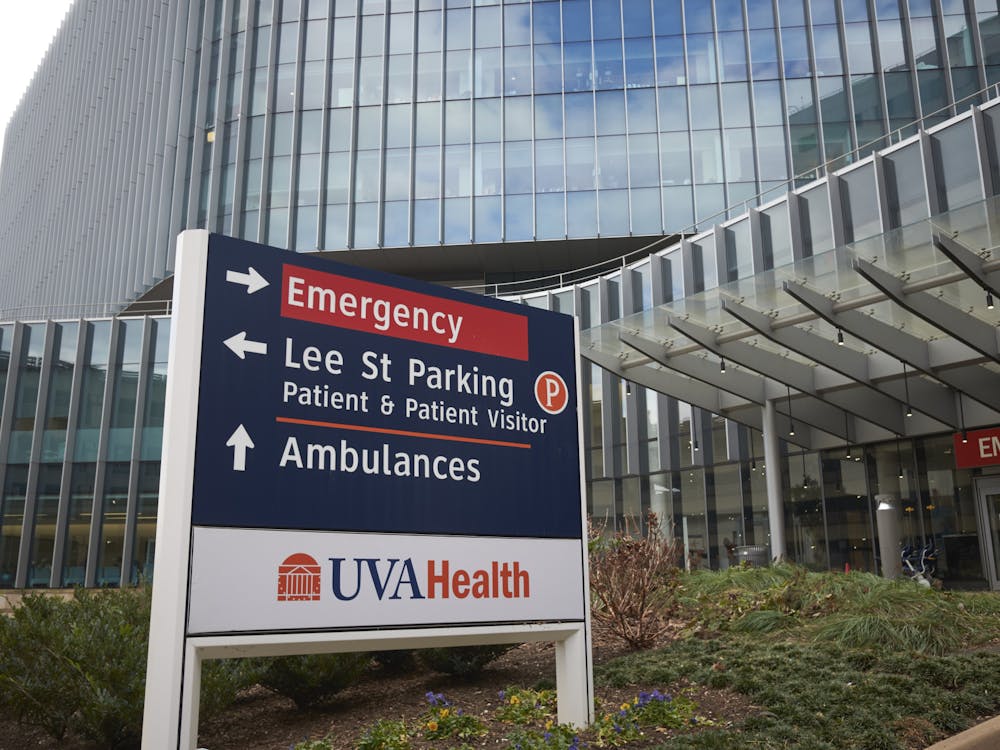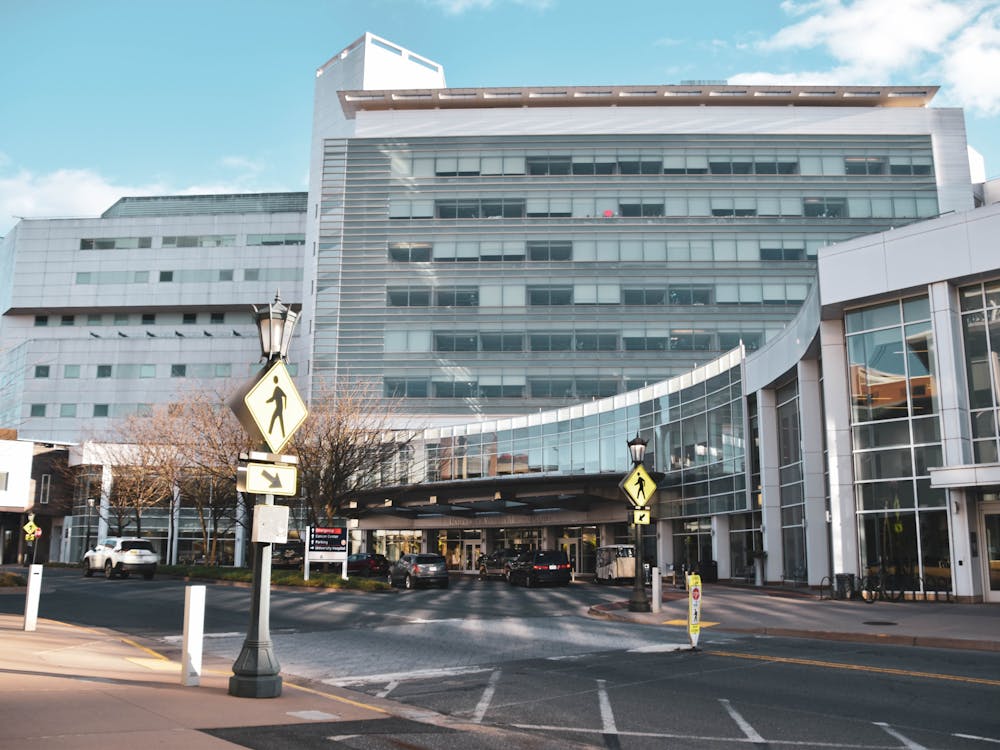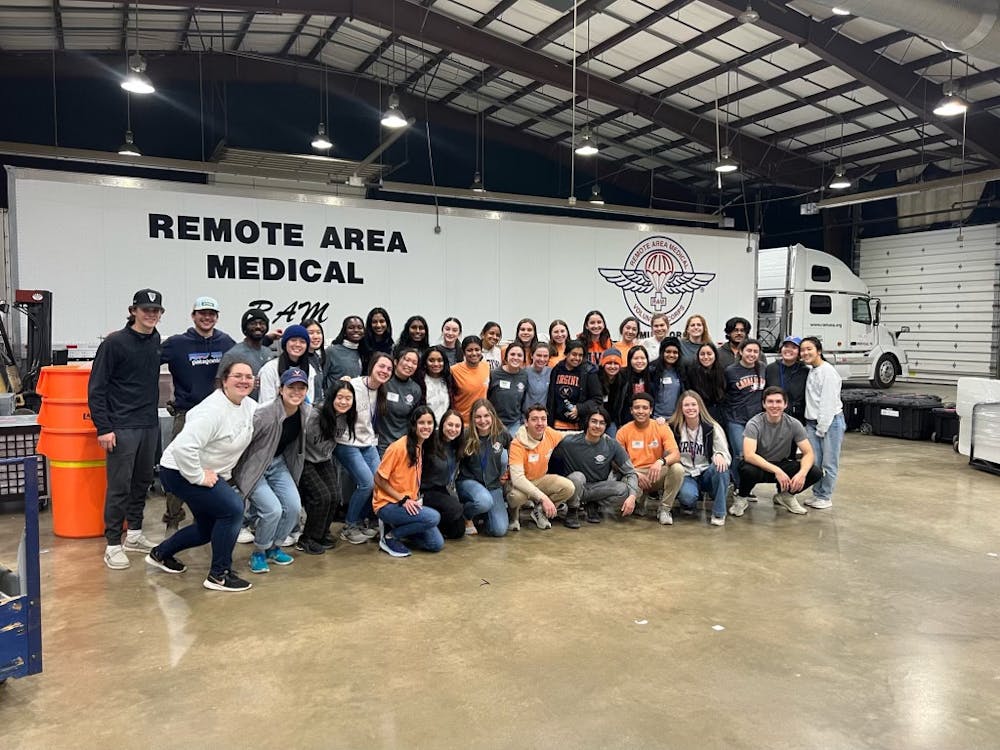In accordance with Virginia’s phase two of reopening during the COVID-19 pandemic, many University biomedical graduate students returned to in-person work in early June after nearly a three-month hiatus. To avoid the spread of the virus, ramp-up protocols now advise graduate students to work in shifts, wear masks at all times, fill out wellness reports daily and get tested for COVID-19 before the fall semester begins.
But many biomedical graduate students are seeing lasting impacts from the pandemic as their doctoral timelines are delayed. Students midway through their doctorate, incoming students and international students are being disproportionately affected by these delays.
On March 18, after undergraduate students were asked to return home, University Provost Liz Magill emailed researchers to say that biomedical labs should be shifting to “key functions” only — a definition which varied by lab and included activities such as care of living animals, among others. At the time, it was unclear if graduate students were allowed to continue in-person work.
Collin Dube, a fourth-year graduate student in the Microbiology, Immunology, and Cancer program and president of the Graduate Biosciences Society, explained that this led to a period of uncertainty for graduate students, especially for students whose work is primarily in the lab and requires long term planning.
“I understood both sides, that we needed to not be in-lab for the greater good because we don’t want to put people at risk, but at the same time it was very frustrating because I’m almost 100 percent wet lab,” Dube said. “There was a day-to-day [question] of are we working, are we not working?”
On March 23, Magill wrote to the research enterprise that graduate students were “first and foremost students” and should not be designated by advisors to be in laboratories. Other laboratory personnel were reminded to carry out essential functions only.
As a result, in March, many labs entered a dry spell for new research, as long-term experiments were halted and perishable supplies needed for experiments were lost. Many labs also chose to pause breeding of laboratory animals, primarily due to a reduced ability of laboratory staff to conduct experiments and check on animals frequently.
Since the average doctorate in biomedical sciences takes approximately five and a half years to complete, productivity during the shutdown for graduate students varied widely by students’ stage in their degree. Many first- and second-year graduate students were able to use the time to read and prepare for their qualifying exams while some older graduate students were able to write up their dissertation work.
However, most third- and fourth-year graduate students, like Dube, are in “the thick of things” experimentally, accruing data from in-person work to go into publications and grants.
In late April, some students in the Neuroscience Graduate Program became concerned that graduate students would not be allowed back in labs until undergraduate students returned to in-person class in the fall.
Courtney Rivet, a third-year Neuroscience graduate student, wrote a letter to Magill in late April, asking that graduate students be considered separately from undergraduates and be given the option to return to campus so they can continue their critical, time-sensitive research. Ultimately, 30 neuroscience graduate students signed the letter.
“We don’t really have classes anymore, and we really can’t advance our degree at all without being able to work,” Rivet said. “I think one of the scariest things for me — and I know people in my year because we’ve been talking about it a lot — is that [the pandemic] most likely extended our graduations by a year.”
Since early June, biomedical graduate students have been allowed back to labs in shifts. Yet many labs are only working at partial capacity as access is determined by the square footage of their lab spaces in an effort to follow social-distancing rules, causing the pace of research to be slower than usual.
Biomedical sciences leadership is also focusing on how incoming graduate students will be impacted by the pandemic. Dr. Janet Cross, associate dean for graduate and medical scientist programs within the School of Medicine, explained that one of the student populations hardest hit by the pandemic are incoming international students. With travel restrictions and visa issues in constant flux, some international graduate students may not be able to start school this year as planned.
In addition, the course that all incoming biomedical graduate students take — the Core Course — is likely to be a hybrid of online and rotated socially distanced in-person activities. Training during lab rotations, where first-year graduate students spend time in labs before joining one, may also be done partially online. While some things, like the mentorship style of a principal investigator, could be possible to assess over Zoom, some, including Dr. Cross, are concerned that online training may make it difficult for incoming students to get a feel for laboratory environments.
Dube, as president of the student-run Graduate Biosciences Society, remembers the importance of community-building his first year on Grounds. To help welcome the new class, GBS is attempting to host some outside, in-person social events later this summer, should students feel comfortable.
Cross explained that community-building is a central focus for her since supportive relationships between students can have a lasting impact throughout a doctoral program.
“When it comes down to it, the interaction with people is what makes or breaks a Ph.D,” Cross said. “The science is important — it’s the science that gets you out of bed in the morning — but it’s the relationships that shape the time here as well as in the future.”
Dr. Bimal Desai, associate Pharmacology professor and principal investigator, shares a similar sentiment. As one of many principal investigators who have experienced a range of scientific setbacks because of the pandemic, he also highlighted the impact of the pandemic on everyday lab dynamics.
“I really miss the background hum of trainees and staff talking to each other about science and also the spontaneous banter over current events,” Desai said in an email to The Cavalier Daily. “So much of research revolves around casual unplanned exchanges that take place over lunch or coffee with colleagues. I worry that [the] pandemic will subdue the vibrant research culture in my lab that developed over many years.”
Despite all the challenges to biomedical research the pandemic has posed, scientists have still managed to find some silver linings during the pandemic.
For Dube and Rivet, the pandemic gave them time away from the lab to focus on their physical and mental health, as well as a renewed fervor for their benchwork.
“[N]ow I feel very excited and re-motivated in a way to try and get things back on track, and in a sense I’m grateful for the timing of it all, because even though it has probably extended our graduation … it also came at one of the most stressful times when I was feeling a little bit of burnout,” Rivet said. “So it feels like a new start in a way which is really, really exciting.”
Ultimately, many biomedical graduate students have been able to return safely to work and are resuming some sort of normalcy, and Cross emphasized that Biomedical Sciences leadership has been doing its best to accommodate student concerns during this transition. Since the Biomedical Sciences students are among the first to return to Grounds, they are serving as pioneers ahead of the return of undergraduate students.
“I think we’re the leading edge of addressing [pandemic-related] concerns, and those concerns have been addressed in a way I consider satisfactory,” Cross said. “I’m trying to stay optimistic that if we can just weather this transition period that we can get back to whatever the new normal is going to be soon.”





